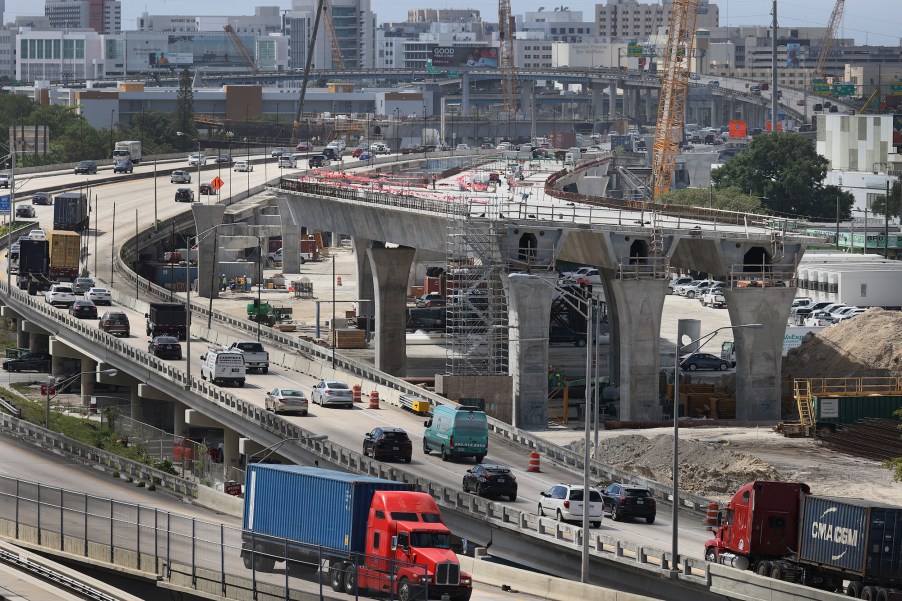
America’s Most Stressful Roads Might Be in Your City
Despite advanced car safety features, there’s no substitute for safe driving. Keeping your hands on the wheel and staying alert can prevent accidents. Because aggressive driving can endanger you and affect your vehicle’s fuel economy, staying calm while driving is important. However, it’s easier said than done on stressful roads.
According to Fleetlogging, some U.S. highways elevate drivers’ stress levels. In fact, if you live in Florida or Georgia, you might be familiar with the most stressful roads in the nation.
The United States’ most stressful roads
Many drivers retreat to Twitter to vent their frustrations when agitated on stressful roads. Almost 87 percent of tweets from drivers on Interstate 95 in Miami, Florida, used anxious or aggressive language. This wasn’t a shock to the Miami Herald, which describes the highway as constantly gridlocked.
I-95 was also the number-one hotspot for traffic accidents in Miami last year, many of which were fatal.
And searching for I-85 and I-285 on Twitter pulls up over 80 percent of rageful tweets. Both of these stressful roads are located in Atlanta, Georgia. Over 75 percent of the tweeters on Atlanta’s I-75 also expressed frustration while driving on this road.
In some cities, the ire isn’t isolated to one highway. Lubbock, Texas, has the most stressful levels of traffic at 75 percent. Fort Worth and El Paso are at levels above 60 percent. Roadways in Newark, New Jersey, and Stockton, California, are also loathed by over 70 percent of drivers on social media.
Rhode Island holds the distinction of the highest density of stressed-out drivers at 62.2 percent. Fleetlogging speculates this is due to both a high population and the closure of Lincoln’s Manville Bridge. With highways trying to accommodate more cars than usual, there’s bound to be stress and delays.
Fleetlogging’s data also shows Utah’s and Iowa’s highways inspire the least stress among drivers. In fact, Carinsurance.com cited Utah as the best place to drive in the United States. The least stressed-out city is Riverside, California, which incites road rage in only 22.5 percent of tweeters.
Long-term effects of road rage
Though many use the term “road rage” in a comedic light, the actual consequences are no joke. Stress behind the wheel could cause you to perform more dangerous driving maneuvers than you would while calm. According to Time, a stressful commute can also raise your blood pressure, blood sugar, and cholesterol.
Stressful roads can even take a toll on your mental health by elevating levels of anxiety and depression. The fatigue of stopping and crawling along a highway with little progress can also affect your sleep schedule. If you don’t get enough rest at night, you might be at risk of falling asleep while driving.
The adverse effects of road rage can even extend outside the car. In a TheConversation study examining highways in Los Angeles, domestic violence also spiked after periods of unexpectedly high traffic. I-10 in LA was shown to prompt 70 percent of wrathful tweets.
Staying safe on stressful roads
There are a few things you should never do behind the wheel, especially in cities with high populations of aggressive drivers. Avoid doing your makeup or trying to change your clothes while driving. Selfies, texting, and playing with your infotainment system should also wait until your car is at a complete stop.
Even hands-free technology offers no significant safety or heightened attention while driving. You should also be well-rested behind the wheel and try to avoid driving with unruly passengers. Having too much fun or arguing with another rider distracts you from the road and increases the likelihood of accidents.



